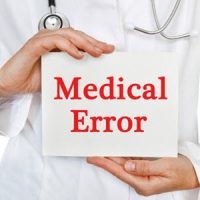Does Technology Help Or Hinder When It Comes To Medication Errors In Florida?

Technology has transformed every industry, but one of the most impactful examples of innovation in health care is Computerized Provider Order Entry (CPOE). In the decades since these solutions first debuted in 1971, CPOE has cut prescription errors in half according to the US Department of Health and Human Services’ Agency for Health Care Research and Quality (AHRQ); some studies even suggest that the reduction in medication mistakes could be as high as 80 percent. Officials note that CPOE systems are successful in addressing vulnerabilities in the process of ordering, including:
- Drug interactions;
- Drug versus disease incompatibilities; and
- Medication safety by patient age.
Still, on the other side of the statistics, anywhere from 50 to 20 percent of medication mistakes are not caught by CPOE. Numerous factors may be to blame, but the fact is that harm to patients is preventable. A Tampa medical malpractice lawyer can explain how these cases fall under state medical malpractice laws, but you might find it helpful to check out an overview on the role of CPOE.
Common Medication Errors Persist with CPOE
Technology has been effective at reducing errors due to poor handwriting and transmitting an order to the pharmacy, but there are two key areas where CPOE falters:
- The Human Element: As with any technology, the user interacting with the solution can be the source of the problem. Ordering a medication starts with selecting the right patient, but CPOEs abbreviate names and the user interface can be cluttered – leading to the wrong selection. In addition:
- A user must often switch among multiple screens when ordering a single prescription, increasing the potential for mistakes.
- Some CPOE systems cancel or suspend medications when a patient undergoes surgery.
- Integration Challenges: The CPOE in one hospital may not be the same as what the physician uses at a medical office or other facility, so conflicting and duplicate orders are a problem. Plus, a doctor may not be presented with appropriate options for dosage, possibly conflicting with clinical guidelines.
What to do About a Medication Error
These mistakes are preventable, so they fall under Florida med mal laws. You may qualify for compensation by showing that a health care provider did not comply with the proper standard of care in delivering treatment, and you were harmed because of the medication error. To enforce your rights, keep in mind a few tips and To-Do’s:
- Get proper medical care to address the error.
- Switch providers right away.
- Do not discuss details regarding the medication mistake.
- Set up a consultation with a medical malpractice lawyer who will handle other essential tasks, including investigations, insurance claims, and litigation.
Contact Our Tampa, FL Medication Errors Attorneys Right Away
CPOE and related technologies show promise in preventing medication errors, but the solutions have not completely eliminated the risk. For more information about legal remedies under Florida medical malpractice laws, please call Greco & Wozniak P.A. 813.223.7849, or go online to set up a free consultation at our offices in Tampa, FL.
Resource:
psnet.ahrq.gov/primer/computerized-provider-order-entry
